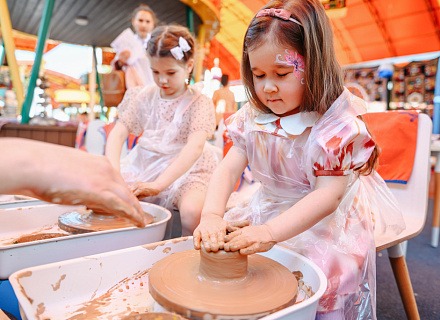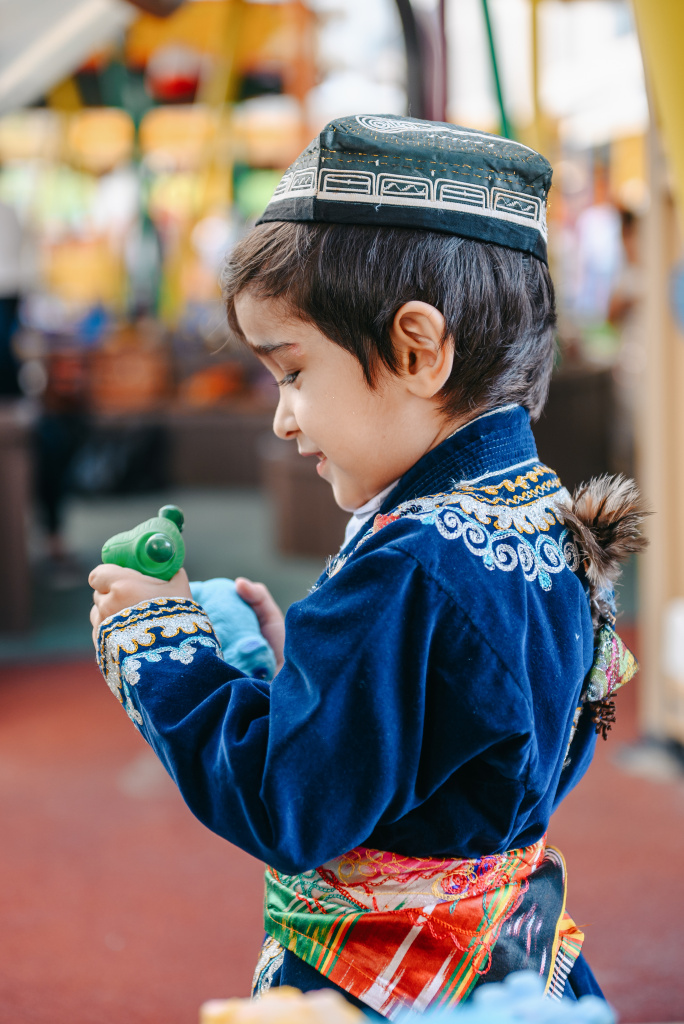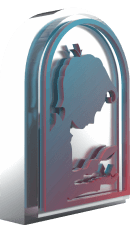Early Years Programme (EYP)

Early Years PYP is the first step in the IB system — the initial level of the Primary Years Programme (PYP) for the youngest learners. It focuses on nurturing a love of learning, independence, confidence, and care for oneself and others. Through play, exploration, and a thoughtfully designed environment, children begin to discover the world and themselves.
 (1).png)
At Invento, the Early Years Programme involves children aged 2 to 6 and is implemented at the Tashkent City Campus — our early development school. We provide learning based on IB standards and the best practices in early year education, considering each child’s interests and creating an environment where the learning process becomes an engaging and natural process. Here we lay the foundation for the child’s successful future and ensure a smooth transition to Grade 1 of primary school.
The IB PYP Early Years Curriculum
At Invento, the EY Programme is divided into four grade levels:
- Toddlers (2–3 years)
- Early Years 1 (3–4 years)
- Early Years 2 (4–5 years)
- Preschool (5–6 years)
Each grade follows a structured daily schedule: academic activities take place from 9:00 AM to 3:30 PM, followed by after-school clubs and extracurriculars. Lessons are held in 30-minute blocks with regular breaks. Starting from Early Years 1, all instruction is conducted entirely in English. The programme includes not only academic subjects, but also swimming sessions, music classes, outdoor activities, massage sessions, speech therapy lessons and other subjects.
.jpg)
.jpg)
The programme is built around six key areas of a child's development:
- Physical development: gross and fine motor skills, confident control of the body, active movement and games
- Social and emotional development: understanding emotions, interacting with others, care and empathy
- Speech and language development: vocabulary expansion, coherent speech, the ability to listen and express thoughts, gentle introduction of English
- Cognitive development: fostering curiosity, early logic and numeracy skills, initial scientific understanding
- Artistic and aesthetic development: music, drawing, pottery
- Development of independence: self-care skills, organizing personal space, involvement in planning the daily routine
Why study Eearly Years Program at Invento?
Early Years students:
- Learn through play, sensory experiences, and creative activities
- Acquire English in a natural, immersive environment
- Develop independence, emotional intelligence, and communication skills
- Adapt to the school environment and daily routines
- Prepare for the next stage of education — the IB PYP in primary school
 (1).jpg)

Unique approach of Invento in the early years education
Invento Early Years School is a new concept for Uzbekistan that combines the best elements of both kindergarten and school. We create an environment where children engage in the learning process from an early age, while maintaining a playful approach. Unlike traditional kindergartens, academic learning is a priority here — we teach children to think, ask questions, explore, and express themselves through language, mathematics, science, and the arts.
At the same time, we preserve all the best aspects of early childhood education: individual attention, a warm atmosphere, learning through play, and respect for each child's own pace. At the heart of our approach is the child — their interests, personality, and natural development.
We foster a nurturing environment built on care, trust, and respect. We don’t impose knowledge — we create a space where children feel safe and genuinely want to learn and explore.
All our teachers undergo regular IB training and use observation, documentation, and reflection methods. Learning is built on close collaboration with parents.
We believe the purpose of early education is not just preparation for school, but the development of a well-rounded, balanced, and conscious individual — someone who can think independently, feel deeply, and interact with the world with respect and curiosity.
At the Early Years School, learning is not structured around traditional “lessons” but instead follows six areas of development and learning recommended by the IB. These areas help children build a holistic understanding of the world and lay a strong foundation for future learning.
Identity and Social Development (Who we are)
Children explore themselves, their families, friendships, emotions, and relationships. Example: they discuss why we feel angry and how to express emotions with words, create a “family tree,” and role-play “a day with the family.”
Social and Cultural World (How we organize ourselves)
Children investigate how society works, different professions, the role of rules, and how people collaborate. Example: they play “bakery” or “hospital,” learn how a kindergarten operates, and create their own “classroom rules.”
Natural Sciences and the Environment (How the world works)
Children become familiar with natural phenomena, animals, plants, and basic scientific concepts. Example: they plant seeds and observe how a plant grows, study the three states of water, and experiment with magnets.
Communication and Languages (How we express ourselves)
Children learn to express their thoughts through speech, art, movement, music, and drama. Example: they draw emotions, tell stories, sing songs in different languages, and perform mini-presentations.
Mathematical Concepts (Where we are in place and time)
Children learn to navigate space and time, develop early skills in counting, shapes, sequencing, and comparisons. Example: they build houses with blocks based on size, create a weather calendar, count toys and compare which is “more,” “taller,” etc.
Physical Development and Wellbeing (Sharing the planet)
Children develop gross and fine motor skills through hands-on activitieas and phisical play, learn self-care and empathy, and build healthy habits. Example: they play outdoors, learn proper hand-washing techniques, and discuss why it's important to share toys and be polite.

